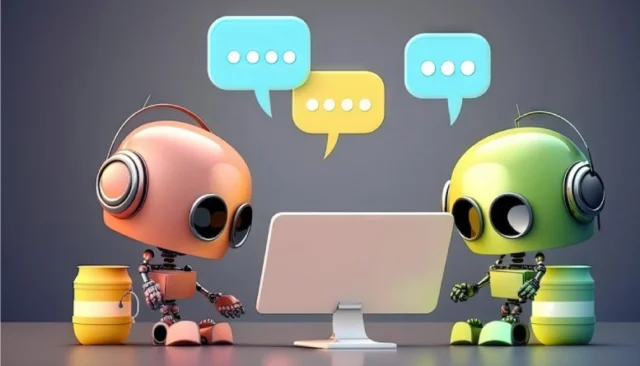In today’s fast-paced digital world, customers expect instant responses to their inquiries, and businesses are continually seeking ways to enhance their customer support. Enter chatbots: AI-powered tools that can handle a variety of customer interactions with efficiency and effectiveness. This blog will explore the role of chatbots in enhancing customer support, the benefits they offer, and best practices for implementing them successfully.

Table of Contents
Toggle1. What Are Chatbots?
Chatbots are AI-driven software applications designed to simulate human conversation through text or voice interactions. They can be integrated into websites, mobile apps, and messaging platforms, allowing businesses to communicate with customers 24/7. There are two main types of chatbots:
- Rule-Based Chatbots: These chatbots follow predefined rules and scripts to respond to user queries. They work well for answering frequently asked questions and providing information.
- AI-Powered Chatbots: These advanced chatbots use natural language processing (NLP) and machine learning algorithms to understand context, learn from interactions, and provide more personalized responses.
2. Improving Response Times
One of the most significant advantages of chatbots is their ability to provide instant responses to customer inquiries. Unlike human agents, who may need time to research answers or attend to multiple customers simultaneously, chatbots can handle thousands of interactions at once, ensuring that customers receive timely support.
- 24/7 Availability: Chatbots can operate around the clock, allowing customers to seek assistance outside of regular business hours. This availability improves customer satisfaction, as users can get help whenever they need it.
- Quick Query Resolution: For simple queries, chatbots can provide immediate answers, reducing the time customers spend waiting for assistance and improving overall efficiency.
3. Handling Frequently Asked Questions
Chatbots excel at addressing frequently asked questions (FAQs), which typically include queries about product features, pricing, shipping, and return policies. By automating these responses, businesses can free up human agents to focus on more complex issues.
- Knowledge Base Integration: Chatbots can be programmed to access a knowledge base or FAQ section, providing accurate information to customers while reducing the workload for support teams.
- Consistent Responses: With chatbots handling common questions, businesses can ensure that customers receive consistent answers, reducing confusion and building trust.
4. Personalizing Customer Interactions
Modern chatbots can analyze customer data and behavior to deliver personalized experiences. By leveraging insights from past interactions, chatbots can tailor their responses to meet individual customer needs.
- User Profiles: Chatbots can create profiles based on user interactions, allowing them to offer personalized recommendations or promotions based on previous purchases or inquiries.
- Contextual Understanding: AI-powered chatbots can understand the context of conversations, enabling them to provide relevant information and suggestions based on the customer’s current needs.
5. Gathering Customer Feedback
Chatbots can play a vital role in gathering customer feedback and insights. After interactions, they can prompt users to provide feedback on their experience, helping businesses identify areas for improvement.
- Surveys and Polls: Chatbots can conduct quick surveys or polls, collecting valuable data on customer satisfaction, preferences, and pain points.
- Real-Time Analytics: By analyzing feedback and interactions in real time, businesses can quickly adapt their strategies and improve their customer support processes.
6. Seamless Handoffs to Human Agents
While chatbots are excellent for handling routine inquiries, there are times when a human touch is necessary. Effective chatbot systems include seamless handoff capabilities to ensure customers receive the support they need.
- Intelligent Escalation: Chatbots should recognize when a query is too complex to handle and escalate the issue to a human agent. This ensures that customers receive the appropriate level of assistance.
- Context Preservation: When handing off to human agents, chatbots should provide the agent with context about the conversation, including the customer’s previous interactions. This information allows agents to pick up where the chatbot left off, creating a smoother transition.
7. Cost Efficiency
Implementing chatbots can lead to significant cost savings for businesses. By automating routine inquiries, companies can reduce the number of human agents required to manage customer support, resulting in lower labor costs.
- Scalability: Chatbots can handle increased customer inquiries without requiring additional staff, making them a scalable solution for growing businesses.
- Reduced Training Costs: Since chatbots manage many routine interactions, businesses can save on training costs associated with onboarding new customer support agents.
8. Best Practices for Implementing Chatbots
To maximize the benefits of chatbots in customer support, consider these best practices:
- Define Clear Objectives: Identify the specific goals you want to achieve with your chatbot, such as reducing response times or improving customer satisfaction.
- Choose the Right Technology: Select a chatbot platform that aligns with your business needs and can integrate seamlessly with your existing systems.
- Train Your Chatbot: Ensure that your chatbot is well-trained using relevant data, including FAQs, product information, and customer interactions.
- Monitor Performance: Regularly analyze chatbot interactions to identify areas for improvement and make necessary adjustments to enhance performance.
- Encourage User Engagement: Promote the chatbot across your website and other customer touchpoints to encourage users to engage with it.
Conclusion
Chatbots are transforming the landscape of customer support by providing instant responses, personalized experiences, and efficient handling of inquiries. By leveraging chatbots, businesses can enhance customer satisfaction, streamline operations, and reduce costs. As technology continues to advance, the role of chatbots in customer support will only grow, making them an essential tool for businesses seeking to stay competitive in the digital age. Implementing chatbots strategically and following best practices will help organizations maximize their impact and create a positive customer experience.


No responses yet